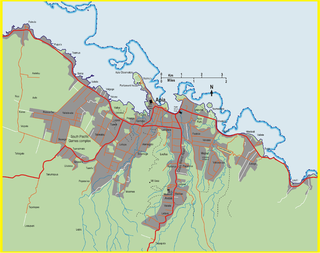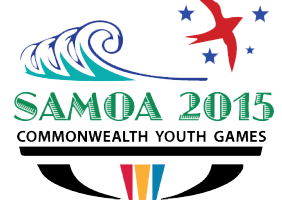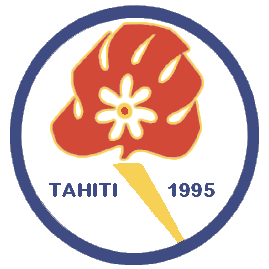
The Commonwealth Youth Games (CYG) is an international multi-sport event organized by the Commonwealth Games Federation. The games were held in the years, mid-way between when the Commonwealth Games are held, until 2008. They continued to be held every four years, but in the year after the Commonwealth Games are held, from 2011 to 2015. Since 2017, they've been held in the year before the Commonwealth Games are held. The first edition was held in Edinburgh, Scotland from 10–14 August 2000. The age limitation of the athletes is from 14 to 18.

The Pacific Games, is a continental multi-sport event held every four years among athletes from Oceania. The inaugural Games took place in 1963 in Suva, Fiji, and most recently in 2019 in Apia, Samoa. The Games were called the South Pacific Games from 1963 to 2007. The Pacific Games Council (PGC) organises the Games and oversees the host city's preparations. Athletes with a disability are included as full members of their national teams. In each sporting event, gold medals are awarded for first place, silver medals are awarded for second place, and bronze medals are awarded for third place.

The World Masters Games is an international multi-sport event held every four years which, in terms of competitor numbers, has developed into the largest of its kind. Governed by the International Masters Games Association (IMGA), the World Masters Games is open to sports people of all abilities and most ages – the minimum age criterion ranges between 25 and 35 years depending on the sport. Auckland, New Zealand hosted the event's ninth edition from 21 to 30 April 2017.

The 2003 South Pacific Games were held in Suva, Fiji from 28 June to 12 July 2003. They are also known as the XII South Pacific Games.

Tuanaimato is a geographical area near Apia, Samoa.

The 2011 Pacific Games took place in Nouméa, New Caledonia, from August 27 to September 10, 2011. Nouméa was the 14th host of the Pacific Games. Upon closure of the registration for entries, "some 4,300 athletes" had registered from the twenty-two competing nations, although it was expected that not all would attend.

The 2015 Commonwealth Youth Games, officially known as the V Commonwealth Youth Games, and commonly known as Samoa 2015, was the fifth Commonwealth Youth Games which started in 2000. They were held from 5 to 11 September 2015 in Apia, the capital of Samoa. Samoa were the only bidders for the Games.
The swimming competition at the 2007 South Pacific Games in Apia, Samoa was held:

The 2019 Pacific Games was the sixteenth edition of the Pacific Games. The Games were held in Apia, Samoa, returning there for the first time since 2007. It was the third time overall that the Pacific Games were held in Samoa.

The 1963 South Pacific Games, held from 29 August to 9 September 1963 at Suva in Fiji, was the first edition of the South Pacific Games. The multisport games were established to engender bonds of friendship amongst peoples in the Pacific, after an idea originated by Dr A.H. Sahu Khan was adopted by the South Pacific Commission. At a meeting of nine Territories, held in Nouméa during March 1961, Fiji was awarded the honour of hosting the first Games.

The 1991 South Pacific Games, held from 7–21 September 1991 at Port Moresby and Lae in Papua New Guinea, was the ninth edition of the South Pacific Games. This was the first time that events at one games had been held in two cities. The decision to do so was to allow both locations to benefit from the construction of new facilities.

The 1971 South Pacific Games, held at Papeete in Tahiti from 25 August to 5 September 1971, was the fourth edition of the South Pacific Games.

The 1999 South Pacific Games, held in Guam from 29 May to 12 June 1999, was the eleventh edition of the South Pacific Games.

The 1995 South Pacific Games, held at Papeete in French Polynesia from 25 August to 5 September 1995, was the tenth edition of the South Pacific Games.

The 1987 South Pacific Games, held from 8–20 December 1987 at Nouméa in New Caledonia, was the eight edition of the South Pacific Games. Political events of the time affected the Games in 1987 and the number of competitors were down. Fiji had two military coups in 1987, and within New Caledonia itself, the Games became a focus of protest in the Kanak independence struggle. The French territories of New Caledonia and French Polynesia had the largest teams and dominated the medal count, with Papua New Guinea finishing third ahead of a depleted Fijian team.

The 1983 South Pacific Games, held at Apia in Western Samoa from 5–16 September 1983, was the seventh edition of the South Pacific Games.

The 1979 South Pacific Games, held at Suva in Fiji from 28 August to 8 September 1979, was the sixth edition of the South Pacific Games.

The 2017 Pacific Mini Games were held in Port Vila, Vanuatu, in December 2017. It was the tenth edition of the Pacific Mini Games, and the second to be hosted in Vanuatu.
Archery at the 2019 Pacific Games in Apia, Samoa was held on 8–12 July 2019. The tournament was played on the outdoor target archery range at the Faleata Sports Complex in Tuanaimato, and included both recurve and compound bow events. Medals were awarded in men's and women's individual contests as well as for mixed team competitions.
Lawn bowls at the 2019 Pacific Games in Apia, Samoa was held on 8–13 July 2019. The tournament was played on the Faleata Lawn Bowls Greens at Tuanaimato. Medals were awarded in separate men's and women's lawn bowls events for singles, pairs, triples and fours.


















